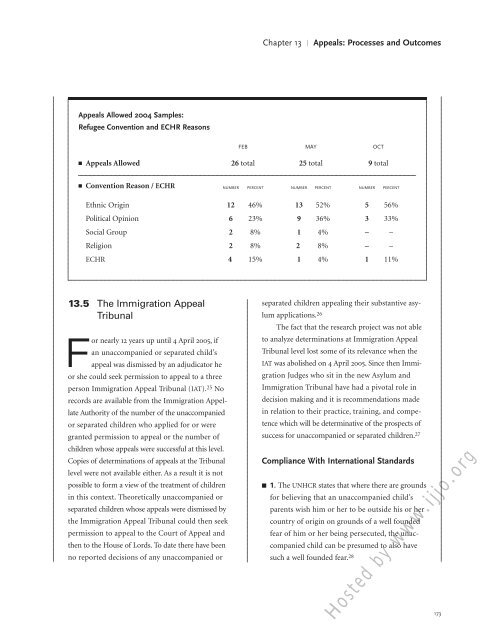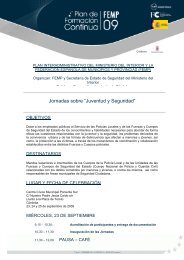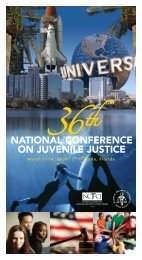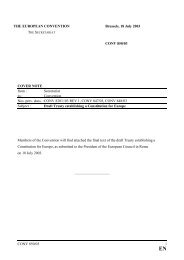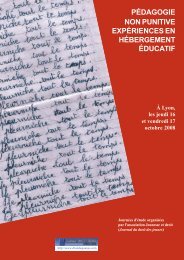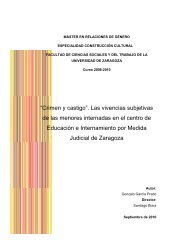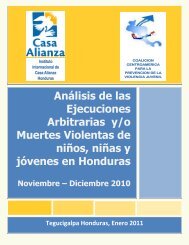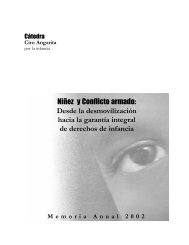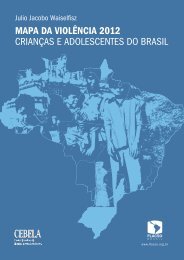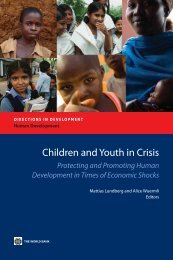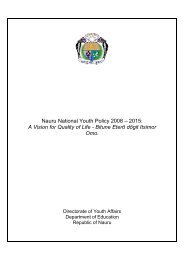Hosted by www.ijjo.org
Hosted by www.ijjo.org
Hosted by www.ijjo.org
You also want an ePaper? Increase the reach of your titles
YUMPU automatically turns print PDFs into web optimized ePapers that Google loves.
Chapter 13 | Appeals: Processes and Outcomes<br />
Appeals Allowed 2004 Samples:<br />
Refugee Convention and ECHR Reasons<br />
FEB MAY OCT<br />
■ Appeals Allowed 26 total 25 total 9 total<br />
■ Convention Reason / ECHR NUMBER PERCENT NUMBER PERCENT NUMBER PERCENT<br />
Ethnic Origin 12 46% 13 52% 5 56%<br />
Political Opinion 6 23% 9 36% 3 33%<br />
Social Group 2 8% 1 4% – –<br />
Religion 2 8% 2 8% – –<br />
ECHR 4 15% 1 4% 1 11%<br />
13.5 The Immigration Appeal<br />
Tribunal<br />
For nearly 12 years up until 4 April 2005, if<br />
an unaccompanied or separated child’s<br />
appeal was dismissed <strong>by</strong> an adjudicator he<br />
or she could seek permission to appeal to a three<br />
person Immigration Appeal Tribunal (IAT). 25 No<br />
records are available from the Immigration Appellate<br />
Authority of the number of the unaccompanied<br />
or separated children who applied for or were<br />
granted permission to appeal or the number of<br />
children whose appeals were successful at this level.<br />
Copies of determinations of appeals at the Tribunal<br />
level were not available either. As a result it is not<br />
possible to form a view of the treatment of children<br />
in this context. Theoretically unaccompanied or<br />
separated children whose appeals were dismissed <strong>by</strong><br />
the Immigration Appeal Tribunal could then seek<br />
permission to appeal to the Court of Appeal and<br />
then to the House of Lords. To date there have been<br />
no reported decisions of any unaccompanied or<br />
separated children appealing their substantive asylum<br />
applications. 26<br />
The fact that the research project was not able<br />
to analyze determinations at Immigration Appeal<br />
Tribunal level lost some of its relevance when the<br />
IAT was abolished on 4 April 2005. Since then Immigration<br />
Judges who sit in the new Asylum and<br />
Immigration Tribunal have had a pivotal role in<br />
decision making and it is recommendations made<br />
in relation to their practice, training, and competence<br />
which will be determinative of the prospects of<br />
success for unaccompanied or separated children. 27<br />
Compliance With International Standards<br />
■ 1. The UNHCR states that where there are grounds<br />
for believing that an unaccompanied child’s<br />
parents wish him or her to be outside his or her<br />
country of origin on grounds of a well founded<br />
fear of him or her being persecuted, the unaccompanied<br />
child can be presumed to also have<br />
such a well founded fear. 28 173<br />
<strong>Hosted</strong> <strong>by</strong> <strong>www</strong>.<strong>ijjo</strong>.<strong>org</strong>


